Spoken Word Reviews
THE GEOGRAPHY OF ME - Rose Condo
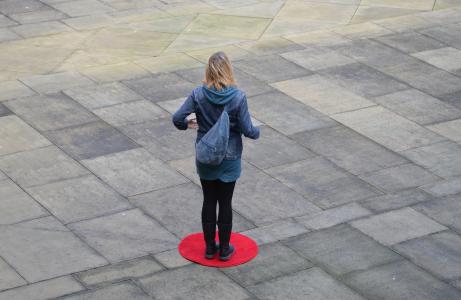
Rose Condo loves travelling, and she also loves writing. Perpetually on the move and scribbling in journals, this show is the natural outcome.
A real map nerd, Condo showed us her map of the world with little red dots of all the places she has been to. She described her love of the maps you find in public places with their red dots and the words of her first poem “You are here”. Her very own red dot is introduced as she muses on how the dots map where you’ve been but not the experiences you’ve had, nor the metaphysical journeys you make - The Geography of Me as the title of the show has it.
All the way from Winnipeg, Canada (somewhere in the middle as she told those of us unsure of Canadian geography), though today she had come from Salford, Condo is an engaging presence, she has a lovely tone and slips effortlessly into conversational style poetry. That ease belies the quality of the work, these are thoughtful and clever poems.
Exploring cultural differences in Queue Forming Nation, Condo moves into a flight of fantasy in a bus stop shelter as she imagines disrupting the queue by inviting those waiting stoically in the rain outside to come inside. She moves from the introspective, looking at her motivation for writing, to the world outside, and Canada’s ambiguous position in relation to its noisy neighbour to the south.
There is one of the nicest moments of audience interaction of this Fringe when we get to share what places in the world mean most to us, and it says much for the performer that she elicits honest and personal responses.
This is the earliest of Rose Condo’s three shows, so I hope we see the others, and more from this talented poet and performer in Fringes to come.
Stephen Walker
LAUDABLE PUS (FROM GALEN TO GALLSTONES) - Silver Pine Productions
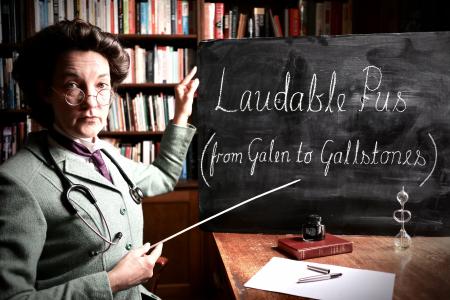
In this highly enjoyable evening, the audience is treated to a lecture by Prof Ruth Levin, a stern, straight-talking lecturer who takes her students through a whistlestop history of medicine. She is helped (and occasionally hindered) by a hapless assistant who runs a Powerpoint presentation, helps with costume changes and generally is the butt of the Professor’s impatience and disdain.
This is not some dry lecture however, as, during the course of it, the Professor inhabits the characters of a number of key figures in medical history. We meet Greek physician Galen of Pergamon, whose misinterpreted quote forms the title of this show. We meet surgeon Sir Robert Liston, who was able to remove a patient’s leg in under 30 seconds (we get a practical demonstration). Finally we meet Elizabeth Garrett Anderson, forced to circumvent the restrictions on women practicing to obtain a medical degree and lead the way for others.
The Professor and all these characters are inhabited by Sarah Gordon who takes us through this fascinating subject with wit and energy. As well as introducing us to these historical figures, we also learn that ‘fake news’ is nothing new in the history of medicine, and even Jenner’s smallpox vaccination was the victim of its own breed of antivaccer misinformation.
Laudable Pus was reminiscent of an episode of the Radio 4 podcast, You’re Dead To Me, combining fascinating historical and scientific nuggets with humorous observations. Check it out – you’ll learn something, you’ll be entertained, and you’ll have an excellent cup of tea.
Robbie Carnegie
TWILIGHT TALES - L& J
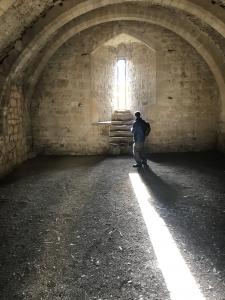
This show brings together four stories and a play – all performed in the unique setting of Poole’s Cavern. The author Leslie Oldfield is joined by Jill Neves and the two alternate when telling the stories. Prior to each story being told, Leslie gives the audience a little bit of background relating to what was his inspiration was or the social history of the time. This sets the scene for each tale and provides additional interest for the audience. It is clear he has a real interest in history and his attention to detail gives each story a solid grounding in their settings.
The show begins with a performance of a play set in Whitby just after the First World War. I don’t want to spoil the reveal for future audiences, so will only give brief details of each story in this review. In this opening, ‘The Chinese Room’, an Officer arrives at a guest house looking for accommodation during a busy August Bank Holiday, unaware that his stay will bring him face to face with his past.
The first story, ‘The Ghost Children of Moscar’, is told by Jill Neves. It is set in the Lake District and recalls a pit disaster and the children who perished. Jill uses both her physicality and vocal talents to draw us into this tale.
The second story, ‘The Wedding Suit’, is set in 1950’s Glossop. Leslie’s use of local landmarks and settings lends the tale the status of a real event. This chiller was my standout performance of the evening.
‘A Primal Fear’, the third story, is performed by Jill Neve and is appropriately enough set in Poole’s Cavern in the Victorian era. This is where the show’s setting really comes into its own. It allows the audience to really empathise with the story’s protagonist and imagine the ordeal she is going through.
The performance is wrapped up by Leslie Oldfield as he tells the story of The Lost Shoe set in 17th-century Stoney Middleton, Derbyshire. Three men discover to their cost that a scheme they devised to drive someone out of the area will have disastrous consequences for them.
This show packs a lot into the space of an hour. Both Leslie and Jill are excellent narrators and Leslie's stories strike just the right spine-chilling note for those who enjoy a good ghost story. I would really recommend this show.
April Irwin
MADE IN MEXBOROUGH: TED HUGHES’S SOUTH YORKSHIRE - Steve Ely

This illustrated talk epitomises everything that the Buxton Fringe strives to be: inspiring, entertaining, informative and connecting audiences to new cultural experiences. I must confess that I approached this hour from the viewpoint of an inquisitive layman, certainly interested in poetry but by no means knowledgeable or well-read. What I took away from it was a determination to explore and understand more about one of our greatest poets of the 20th Century.
Steve Ely described being driven to explore Ted Hughes’ history and the origins of his development as a poet by being frustrated that Mytholmroyd had succeeded in claiming Ted Hughes as its own even though he lived there only until he was eight. The formative years of his intellectual and literary development were spent in industrial Mexborough and its surroundings, some forty miles away. Steve makes the point early in his talk that celebrity culture requires a simple, clear message in order to take hold. To identify Hughes as the poet of a visceral, natural world, rooted in the elemental forces and brooding meteorology of moorland and crags, suits Mytholmroyd just as obviously as the Brontes can be rooted in Haworth. Steve Ely suggests that, in some ways, Hughes himself contributed to this myth.
The reality, however, was more complex and nuanced. What Dr Ely has been able to do through others’ research and his own painstaking efforts in South Yorkshire is explore the meaningful family and other relationships in Ted Hughes’ development through his teenage years before National Service in the RAF and then Cambridge. He takes us through Ted’s relationship with his older brother, Gerald, who he idolised and who inspired his imagination for adventure and the natural world (though Gerald’s insistence on shooting everything in sight jars somewhat with modern sensibilities). His older sister, Olwyn, also had influence with young Ted, though of a less ‘macho’ nature.
From working class origins and the hardships of the Depression, the Hughes family’s move to Mexborough marked a step up the social ladder to the ‘petite bourgeoisie’ and young Ted attended Mexborough Grammar School where he seems to have invented himself as an intellectual and a writer - perhaps something of a poseur? Steve describes him as being liked by many, treated with suspicion by a few, but known to everyone. He certainly bonded with inspirational teachers who recognised and nurtured his talent so that, by age seventeen, he knew he was going to be a great poet.
Steve describes the way in which Ted also reconnected with the natural world on the outskirts of the town and could immerse himself in fishing for pike. He and Gerald clearly didn’t need Mytholmroyd and the Upper Calder Valley to satisfy their thirst for adventure and belonging in the landscape.
Steve explores in some detail the stages in Ted Hughes’ growing confidence in his craft, his early poems and other writings and he shows how some of the motifs in his adult body of work had their origins in these adolescent years in Mexborough. If this talk and the very readable book which underpins it, redress the balance between Mytholmroyd and Mexborough, it will significantly enhance our understanding of this major literary figure.
Graham Jowett
THE EEL AND THE WILLOW TIT - Steve Ely

Populations of the Willow Tit and the European Eel have declined more than almost any other species in the UK, both crashing by 95% over the last fifty years. At the URC in Buxton Steve Ely talked about the reasons why this has happened, his interest in these species conservation and read some of his published poetry on both.
Discovering that the bird he remembered well from his youth was now seriously endangered, Ely set out to find the Willow Tit in his old South Yorkshire haunts, and found some almost immediately, but it was a lucky break. He soon discovered that thanks mainly to the loss to intensive farming of the damp scrubby woodland that forms the Willow Tits’ habitat, they appeared in nothing like the same numbers. Unfortunately the Willow Tit is a bit soft, and while it is the only tit that excavates its own nest holes, it is often bullied out of them by Blue Tits and Great Tits.
His poetry about the Willow Tit came about naturally as a result of his conservation interests and he went on to read from his book of Willow Tit poems. 1979 is a long poem evoking a sense of place and memories of old friends as he revisits the scrub around old pits where the birds used to be found in greater numbers. It sparked off thoughts of Kes in my head, and Ely went on to reference that book and film explicitly, and spoke of how the Willow Tit was a symbol for that area and community, hanging on in a post-industrial landscape. His concluding poem investigating the mysterious call description, Zi-Zi Taah Taah Taah, was both amusing and a warning to us.
The Eel has seen similar population falls for many reasons, pollution is one, but also greater management of rivers and drainage schemes have stopped the Eels from getting into the tributaries and onto the floodplains as previously.
In contrast to the Willow Tit poems, Ely’s just published book length poem, The European Eel, was planned more meticulously. He set out to see if he could satisfy three research hypotheses; that it might have scientific value as well as literary, that the subject matter should shape the writing, and it could still be good poetry. The richness of the language and the sensuality achieved in a poem containing its share of latinate scientific terms would suggest that he has achieved what he set out to do.
Ely is an engaging and deeply knowledgeable speaker, giving detailed answers to several questions from the audience at the end, but it was the poetry that lifted the event to another level, that successful melding of science and literature that he sought.
Stephen Walker
CÆDMON SINGS - Michael Gibson
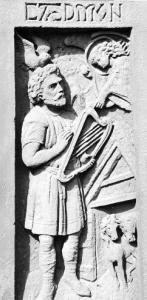
In this show, Michael Gibson takes us on a journey through language and rhythms that spans 1300 years. Through a combination of song, narration and music, played on pipe and harp, he reveals the inherent rhythm of poetry across the ages.
Verses by Thomas Hardy, John Donne and Shakespeare feature, together with unknown voices – one detailing the thoughts of Elizabeth I. You learn about limericks and riddles too.
Michael shows the audience sections of verse as they were originally written. Though beautiful, the manuscripts seem impenetrable, until he translates them and their content unfolds before you.
One of the highlights of the show is Michael’s ability to perform the verse in the vernacular of the period they were written. It gives them a completely different feel and the audience is transported to another place and time.
The show culminates with Caedmon’s story as told by the venerable Bede.
Michael’s enthusiasm for his subject shines strongly throughout the show. In my opinion, this performance could only be improved by lengthening the slot allotted, as an hour does not allow him to do his material, the justice it deserves. I would definitely recommend this show.
April Irwin
WHAT IT IS TO BE BLUE - Dreamshed Theatre
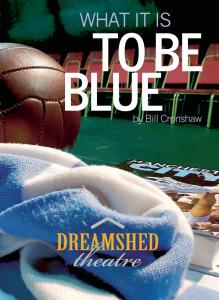
A Zoom-style meeting hosted by a genial and chatty Bill with assistance from his son-in-law, Iain Barton, a West Ham fan in a virtual world of sky blue.
Originally intended to be a gathering of like-minded fans, this evolved into a digital evening of banter and participation about Manchester City and Bill's unashamedly nostalgic personal anecdotes, referenced in his recently published book.
Bill, dramatist, writer and owner of Dreamshed Theatre recalls, "It wasn't supposed to be a book, but a script. Covid changed all that." The impossibility of performing and his desire to share his views on what it means to be an ardent football fan left him with no choice.
This online book launch allowed sharing of the reasons why we choose our football teams (we are usually born into it), who are our heroes (ones that treat us nicely when we meet them or those with poise and grace) and what are our favourite memories (usually winning or losing in some spectacular fashion).
This book wistfully acknowledges what it means to suffer or experience unparalleled joy at the feet of a soccer team. The best memory I heard was the one in which a chant rose up during a difficult match: "Let's pretend we've scored a goal!"
David Carlisle
BUXTON SPOKEN WORDS LIVE! - Buxton Spoken Words

12 local writers gathered to read their own work, but the show opened with a spirited reading of Christina Rossetti’s Goblin Market, which behind the veneer of a dark children’s story, addresses how women’s place in the marriage market conflicts with their desires to lead independent lives. Jane Harland and Alison Morton as Laura and Lizzy were ably supported by a rotating cast of narrators.
Peter Branson got their own readings off to a rousing start as he performed his ballads in traditional style while addressing issues of inequality both timeless and modern. Social justice was a theme throughout, and John Lindley’s “Double Talk”, published in the Poems for Grenfell anthology was my highlight of the evening, skewering the official language around the tragedy.
Randy Horton’s funny poem about social anxiety “I don’t like beer” captured a curiosity in the world and its people, frustrated by the English pub culture. It was nicely counterpointed by Karl Largan’s tributes to bars, and in particular his memories of going to collect his father from the pub in “The Smoking Room”.
Unsurprisingly, the natural world and a sense of place was an inspiration for many, and Bert Flitcroft’s poems about walking out in the hills captured that sense of leaving behind when you ascend the hills and the grandeur you find there. Whereas, Mark Johnson found inspiration for “Red Town” in Leek, a beautiful poem redolent with imagery ‘where all hues are found but only red’.
There were some lovely readings as we enjoyed Ken Smith’s resonant voice in his fanciful tale of horror featuring an umbrella, and Jane Harland’s “Telling”, an allusive poem inspired by an apple orchard.
Maggie Pollard directly addressed climate change in “Green Man Rising”, a most appropriate title which cropped up again in our host Don Dolby’s closing poem “The Green Man, or Woman” which was a fitting end to the evening as he linked the deep history of the land to the venue we were sitting in.
It was both an enjoyable evening and a reminder of the wealth of writing talent on our doorstep, and given the length of time we have been operating under Covid restrictions, the first time that many of the writers had met in person. Despite that, as Alison Morton said, the group have proved an inspiration to each other in their writing.
Fortunately for you, Buxton Spoken Words have managed to squeeze in another date, next Friday 16th July at 7pm in the Pump Room.
Stephen Walker
A CORNUCOPIA OF WRITINGS WITH RASPBERRY SAUCE - Writers in the Peak
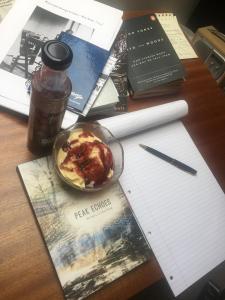
The collection, or cornucopia is as varied as it is stimulating. From fond memories of times gone by to visions of an uncertain future facing those living under times of war or Covid-19. If poetry and music are the sound of summer, then here's a great place to start.
Time is a theme explored by many a poet, wordsmith and lyricist. But is time spent winding up the clocks well spent? Summertime attracts similar exploration. Within the collection, pip-filled raspberries feature prominently, hence the title.
There's raspberry sauce dripping from the ice cream that's just too tempting to ignore and the Russian Rose masquerading as a humble fruit. How rude is it to blow a raspberry? And is the Raspberry Girl really worth waiting for?
Tales full of hope, the joy of a fresh start and the uplift of surviving into the aftermath of a post-Covid-19 world. They help us to understand how we feel about our place in the world, but who can we trust with the truth? And is it the truth after all?
The cornucopia is filled with as many questions as answers, but remember that summer tastes of raspberries!
David Carlisle
COLLECTION OF SPOKEN WORD FILMS BY CLAIRE FINN - Claire Finn
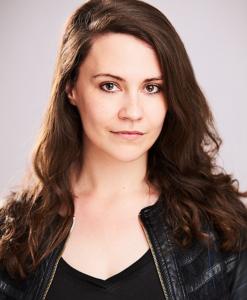
Online collection of new writing by Claire, performed by the Author, herself an accomplished Actor and busy voice-over Artist.
Living Ghost - softly spoken questioning of identity in the time of our great pandemic and haunting in the search for a sense of being.
Voice of the Seasons - Mother Nature appraises the results of her greatest tasks as gaspy, raspy fog-fuelled breaths, like fingernails slowly dragged across a mirror flat lake of ice.
Rippled Waters - an enigmatic stranger stands at the edge of something, unknown and unknowable, her knowledge is powerfully linked to my unease. Beautifully presented with the calm chill of hidden menace.
These presentations would have been a welcome addition to a live theatre experience and maybe will be at future arts events.
David Carlisle
THE SECRET GARDENS - Chapel Arts Creative Writing Group
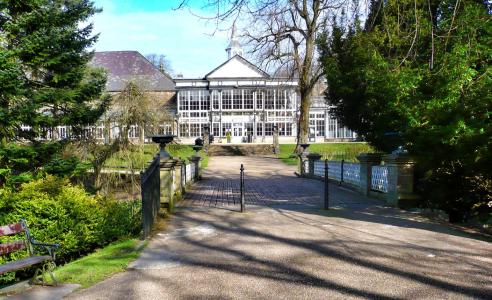
Celebrating 150 years of Buxton’s Pavilion Gardens, this group of enthusiastic writers, tutored by Mark, provide a glimpse into the lives of fictional folk who crossed the pathways, built pontoon bridges, took plentiful picnics, gazed longingly or simply wandered around the beautiful 23-acre site.
Voices from across the Gardens’ history tell tales of clandestine courtships, surreptitious memories, furtive feelings, secretive desires, love-on-the-sly, hidden longings, veiled heartbreak and concealed observations. They are spoken by park-dwellers, ghostly figures and magical beings as well as Fred, Doris and Ethel!
Dimensions of time and space are but the blink of an eye in 150 years, they hold no boundary to the secrets lived over that period. This Zoom recorded and edited series of videos provide a dialogue to that secret history in those secret gardens.
Apparently, a downloadable PDF of the writing can be obtained from this website, but I couldn’t find a link: www.chapelarts.org.uk [Fringe Reviews team: A direct link has now been added to the listing: see https://www.chapelarts.org.uk/LibDocStory.php]
David Carlisle



